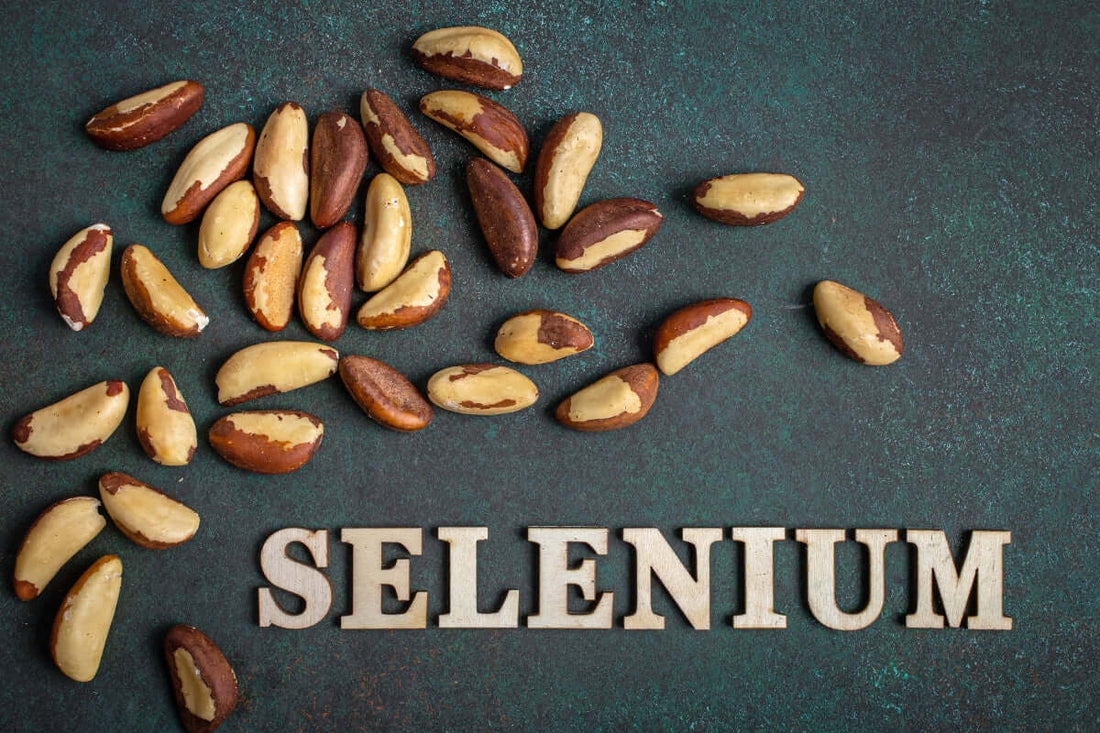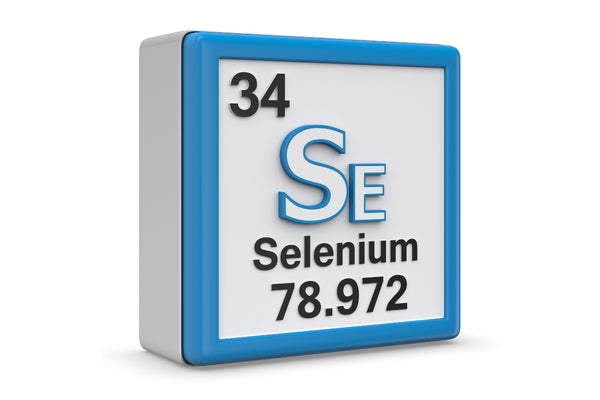Our Favourite Fun Facts about Selenium

Selenium is a chemical element found in a wide variety of products. Is is also one of the most important minerals for healthy functioning of the human body, and so is classed as essential.
However, Selenium has many other uses in the world, and quite and interesting history! Here are some of our favourite interesting facts about selenium:
1. Selenium gets its name from the Greek word "selene," which means "moon." Selene was the Greek goddess of the moon.
2. Selenium has atomic number 34, meaning each atom has 34 protons. The element symbol of selenium is Se.
3. Selenium was discovered jointly in 1817 by Swedish chemists Jöns Jakob Berzelius (1779–1848) and Johan Gottlieb Gahn (1745–1818).
4. Selenium is a nonmetal. Like many nonmetals, it exhibits different colours and structures (allotropes) depending on the conditions.
5. Brazil nuts are high in selenium, even if they are grown in soil that is not rich in the element. A single nut provides enough selenium to meet the daily requirement for a human adult.
6. English electrical engineer Willoughby Smith (1828–1891) discovered that selenium reacts to light (photoelectric effect), leading to its use as a light sensor in the 1870s.
7. Scottish-born American inventor Alexander Graham Bell (1847–1922) made a selenium-based photophone in 1879.
8. The primary use of selenium is to decolorize glass, to colour glass red, and to make the pigment China Red. Other uses are in photocells, in laser printers and photocopiers, in steels, and in semiconductors.
9. There are six natural isotopes of selenium. One is radioactive, while the other five are stable. However, the half-life of the unstable isotope is so long that it is essentially stable. Another 23 unstable isotopes have been produced.
10. Some plants require high levels of selenium to survive, so the presence of those plants means the soil is rich in the element.
11. Liquid selenium exhibits extremely high surface tension.
12. Approximately 2,000 tons of selenium are extracted annually worldwide.
13. Selenium is most commonly produced as a byproduct of copper refining.
14. The element was featured in the films "Ghostbusters" and "Evolution."
15. Selenium is important to several enzymes, including antioxidant enzymes glutathione peroxidase and thioredoxin reductase and the deiodinase enzymes that convert thyroid hormones into other forms. So taking a selenium supplement can be very beneficial to your health. Discover the top health benefits of selenium supplement in our blog.




















